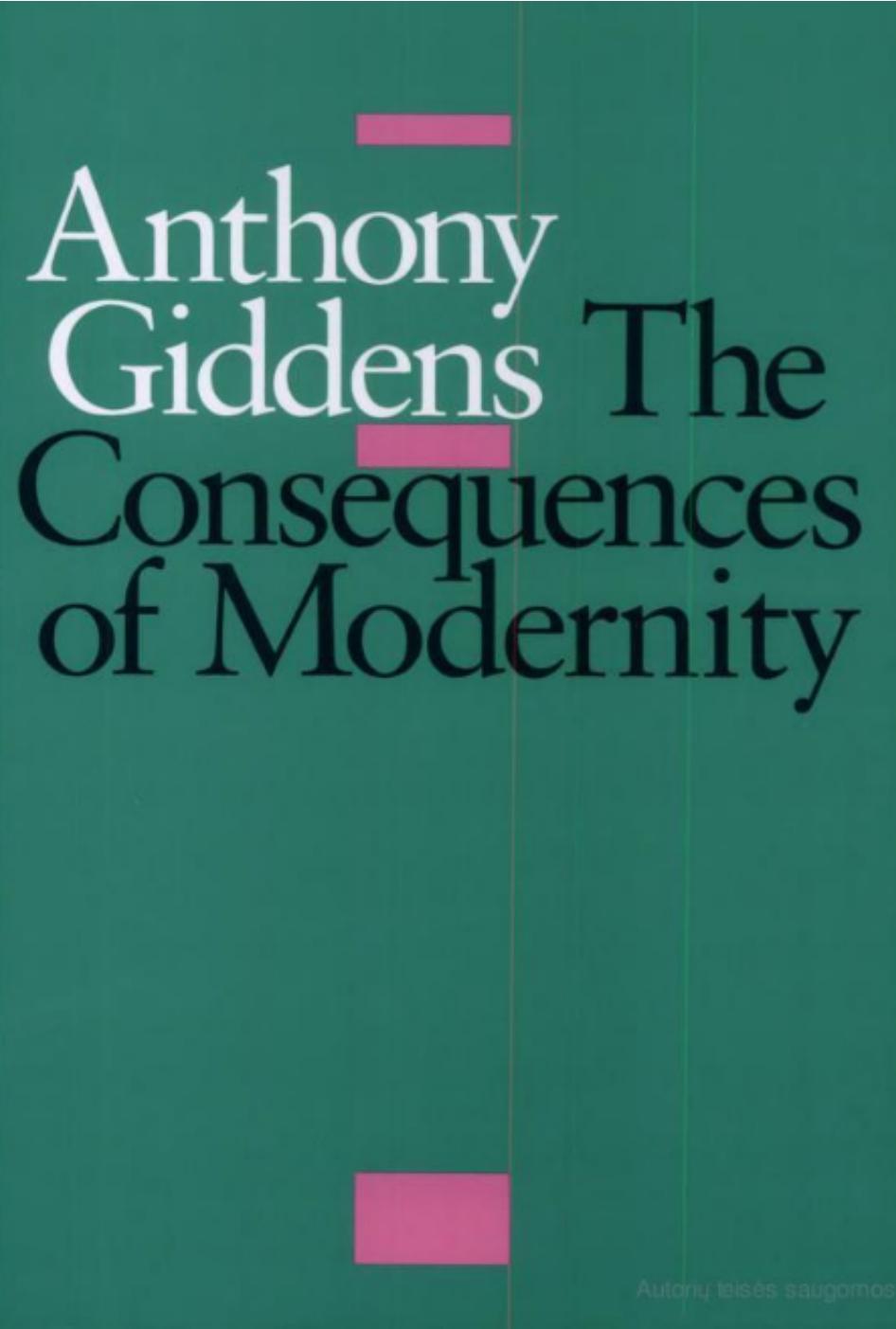The Consequences of Modernity by Anthony Giddens

Author:Anthony Giddens [Giddens, Anthony]
Language: eng
Format: epub, pdf
Publisher: Wiley
Published: 2013-04-24T00:00:00+00:00
Trust and Ontological Security
There are some aspects of trust and processes of personality development which seem to apply in all cultures, pre-modern and modern. I shall not attempt to provide an extensive coverage of these, but will concentrate upon the connections between trust and ontological security. Ontological security is one form, but a very important form, of feelings of security in the wide sense in which I have used the term earlier.53 The phrase refers to the confidence that most humans beings have in the continuity of their self-identity and in the constancy of the surrounding social and material environments of action. A sense of the reliability of persons and things, so central to the notion of trust, is basic to feelings of ontological security; hence the two are psychologically closely related.
Ontological security has to do with “being” or, in the terms of phenomenology, “being-in-the-world.” But it is an emotional, rather than a cognitive, phenomenon, and it is rooted in the unconscious. Philosophers have shown us that on a cognitive level there are few, if any, aspects of our personal existence about which we can be certain. This is perhaps part of the reflexivity of modernity, but is certainly not limited in its application only to a specific historical period. Certain questions—”Do I really exist?” “Am I the same person today as I was yesterday?” “Do other people really exist?” “Does what I see in front of me continue to be there when I turn my back on it?”—cannot be answered in an indubitable way by rational argument.
Philosophers pose questions about the nature of being, but they are not, we may suppose, ontologically insecure in their ordinary actions, and in this outlook they are in accord with the mass of the population. The same is not true of a minority of people who treat our inability to be certain about such matters not just as an intellectual worry, but as a deep disquiet that feeds into many of the things that they do. A person who is existentially unsure about whether he or she is several selves, or whether others really exist, or whether what is perceived really exists, may be entirely incapable of inhabiting the same social universe as other human beings. Certain categories of individuals regarded by others as mentally ill, particularly schizophrenics, do think and act in this way.54
Whatever else such schizophrenic behaviour shows, however, it is hardly expressive of a mental lack—as is also true of many kinds of anxiety states, in crippling or milder versions. Suppose someone anguishes constantly, in a deep-seated way, about whether others harbour malicious intentions towards him or her. Or suppose a person worries constantly about the possibility of nuclear war and cannot push the thought of this risk aside. While “normal” individuals may regard such anxieties, when they are profound and chronic, as irrational, these feelings are more the result of emotional supersensitivity than irrationality. For the risk of nuclear war is always there as an immanent possibility in today’s
Download
The Consequences of Modernity by Anthony Giddens.pdf
This site does not store any files on its server. We only index and link to content provided by other sites. Please contact the content providers to delete copyright contents if any and email us, we'll remove relevant links or contents immediately.
Big Boys' Rules: The SAS and the Secret Struggle Against the IRA by Mark Urban(410)
This Land Is Their Land by David J. Silverman(370)
Emancipation After Hegel by Todd McGowan;(310)
Human Rights Education by Bajaj Monisha; Flowers Nancy;(252)
Rethinking Political Judgement by Maša Mrovlje(250)
